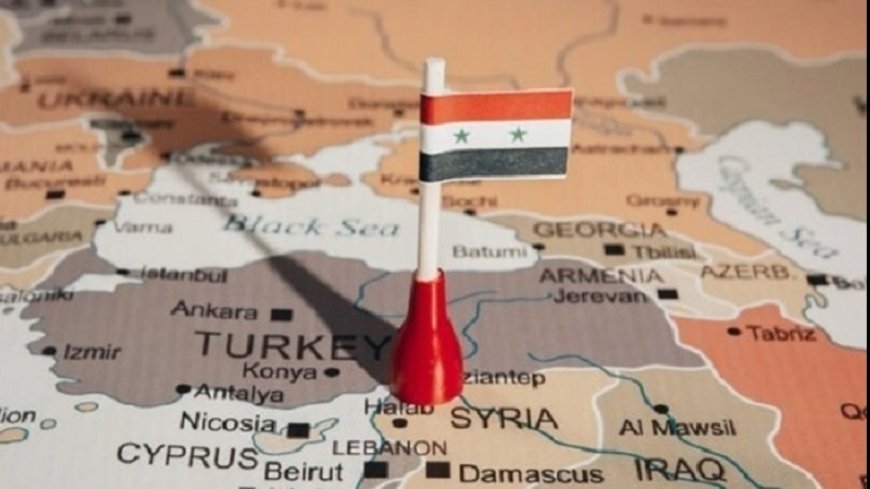Western Double Standards in the Middle East: A Critique of Selective Outrage and Geopolitical Bias
The declaration of a truce in Lebanon on November 27 gave the people living in the war-torn southern areas some flimsy respite. Families have started to go back to their houses after months of shelling and devastation, negotiating the marks of war carved into the terrain. Still, the ground's reality reveals a story of ongoing instability. Some border settlements remain "high-risk" zones, a euphemism phrase for the unresolved dangers presented by war relics and the shadow of more assault.

The declaration of a truce in Lebanon on November 27 gave the people living in the war-torn southern areas some flimsy respite. Families have started to go back to their houses after months of shelling and devastation, negotiating the marks of war carved into the terrain. Still, the ground's reality reveals a story of ongoing instability. Some border settlements remain "high-risk" zones, a euphemism phrase for the unresolved dangers presented by war relics and the shadow of more assault.
Israeli forces have broken the truce in spite of worldwide appeals for peace by acting provocatively that compromises stability and confidence in the area. Mostly unquestioned by Western countries, this breach of agreement highlights a clear discrepancy in their posture on world events. Particularly when Israel is involved, the selective application of international standards exposes a concerning trend of geopolitical prejudice that fuels Middle Eastern violent cycles.
Concurrent with this, the center of regional conflict has turned to Aleppo, Syria, where intense fighting between the Syrian government and Takfiri terrorists connected with Hayat Tahrir al-Sham is raging. Based on reliable reports, these groups—often portrayed as " Syrians rebels" in Western media—are supported by outside powers including Israel. This kind of framing helps to match public view with Western geopolitical goals by hiding the extreme ideas and acts of these groups.
Israel's backing of these groups is a component of a larger plan to undermine the Resistance Axis, an alliance of states and organizations including Hezbollah and Syria fighting Western and Israeli dominance in the area. Israel seems to be reassigning its strategy after failing to reach military targets in Lebanon. Its supposed military superiority suffers greatly when it cannot cross Lebanese territory even after almost seventy days of intensive operations. Apart from thwarting Israeli soldiers, Hezbollah's strong defense confirmed its reputation as a powerful resistance movement.
Though a temporary stop, the ceasefire has driven Israel to investigate other fronts in order to meet strategic objectives. Target now Syrian supply routes, which are vital for Hezbollah's operational capability. Direct threats from Prime Minister Benjamin Netanyahu to Syrian President Bashar al-Assad combined with Israeli airstrikes and military incursions into Syrian territory point to a deliberate attempt to undermine this partnership. With his explosive warning, "You are playing with fire," Netanyahu exposes the goal of the Israeli government to raise tensions while characterizing its behavior as defensive.
The Western reaction, or lack thereof, lends still another level of criticism. Western governments stay shockingly quiet when Israel violates international law, even while quick to criticize infractions abroad. The story of "defending democracy" is selectively used to cover actions aggravating local suffering. Ignoring Israeli aggression helps Western countries not only support ongoing violence but also damage their reputation as arbiters of peace.
There are consequences from this deceit. Such double standards repel viewers all over and inspire anti-Western attitude. For Syrians and Lebanese citizens, the hypocrisy results in real losses—houses destroyed, lives displaced, and futures dubious. Concurrently, the relentless support of Israel for whatever it does reveals the moral bankruptcy of a foreign policy that gives geopolitical ties first priority over justice and human rights.
The Middle East struggles with these compounded challenges begs the issue of how long the West can maintain its selective outrage without compromising its global influence? The solution resides in Western countries' willingness—or lack—to face hard facts regarding their part in extending instability in the area. Peace in Lebanon and beyond stays a far-off dream until then, eclipsed by the reality of geopolitical ambition and moral inconsistency.













































